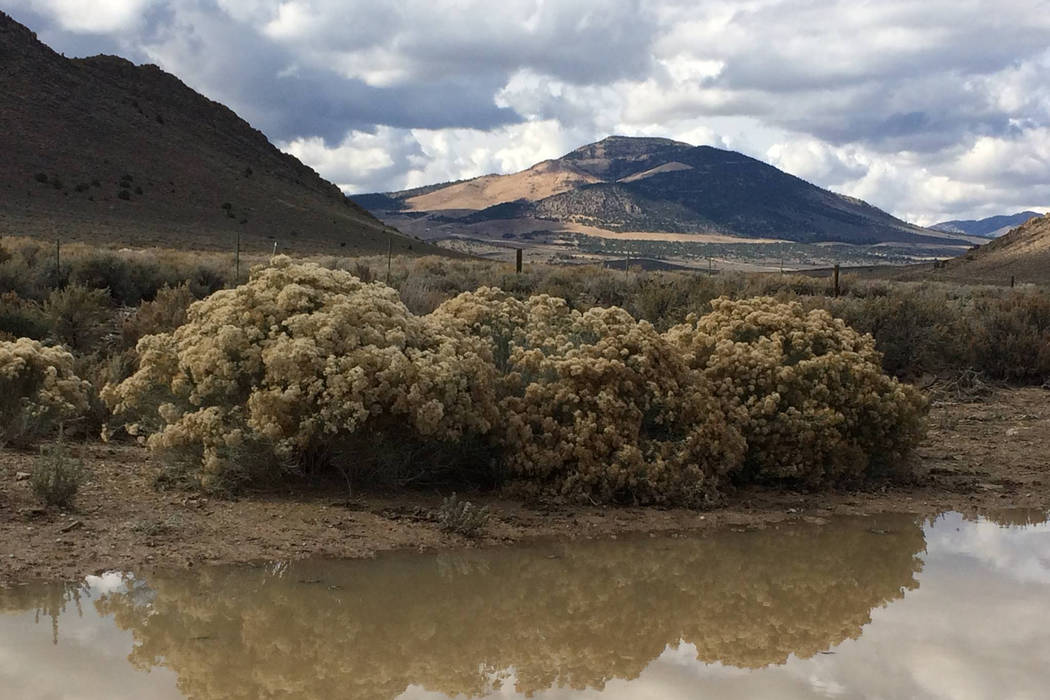State panel upholds Mount Hope mining permit in central Nevada
CARSON CITY — A state panel on Wednesday upheld a permit for a major mining project in central Nevada, concluding that the state did not err in analyzing the risks and hazards involved.
But the three-member panel from the Nevada State Environmental Commission also told state officials and the environmental group appealing the project to continue to work together on unresolved issues and report back in six months.
The appeal centered around the Mount Hope Molybdenum Mine, which is located about 25 miles northwest of Eureka.
Great Basin Resource Watch, a nonprofit environmental advocacy group, appealed the state’s decision to renew the permit for Eureka Moly, a subsidiary of General Moly, arguing that the state used flawed analysis in approving the permit and raised concerns about that the project could degrade the groundwater quality in the area due to the potential for acid runoff from waste rock.
Commission Chairman Jim Gans said that while other pit lakes have been “disastrous,” he believes the state did its job in its analyses and wasn’t sure if more data collection would yield any new results.
“I don’t know what we do at this point to do more to go forward when they met the law,” Gans said.
First OK’d in 2012
In 2012, the state originally approved the 8,100-acre project to mine for molybdenum, which is used to increase the strength of of alloys in products like missiles, engines and saw blades. The proposed mine would operate for roughly 44 years, and would then be back-filled with water and turned into what is called a pit lake.
The company applied to renew its permit in 2017 after not making progress on the project. The state granted the renewal in 2018, which prompted Great Basin Resource Network to file the appeal.
Houston Kempton, a geologist with the Great Basin Resource Watch, said during Wednesday’s hearing that he believes the analysis of potential groundwater pollution at the pit lake that would be left behind after the mine was closed was not conducted properly and that there was not sufficient data for the state to approve the permit.
Instead of looking at the amount of pollutants released over an extended period of time, Kempton said, it looked only at data for a single week.
Brent Johnson, a consultant who authored the original pit lake study on the Mount Hope proposal, said that the studies were in fact conducted over a 57- and 72-week period.
Scientists for the state also argued they conducted 4,000 tests on 1,800 rock samples from the area to look at the potential toxicity.
The project is expected to generate roughly 1.7 billion tons of what is called waste rock. Of that, the state said about 450 million tons, or about 26 percent, is considered potential acid-generating material. That material would be kept at a separate site and positioned to avoid any contact with two nearby springs.
Christine Olson, an environmental scientist with the Bureau of Mining Regulation and Reclamation, testified that there is no risk for the area groundwater to be polluted from the remnants of the mine because it would be what’s called a terminal pit lake, meaning that water would only be able to flow into the lake, but not out of it.
What’s next
John Hadder, executive director of Great Basin Resource Watch, said after the hearing that the groups can come together in the next six months to hash out the technical concerns around the mine.
Despite the commission upholding the permit, Hadder said he thinks the appeal “put a little bit of a fire under people,” and hopes that it will lead to wider discussions on those specialized issues for future permits.
“It’s a big mine. Its going to change the character of the community,” Hadder said. “That’s why we want to make sure it’s as good a mine plan as possible if it’s to go forward.”
Contact Capital Bureau Chief Colton Lochhead at clochhead@reviewjournal.com or 775-461-3820. Follow @ColtonLochhead on Twitter.























